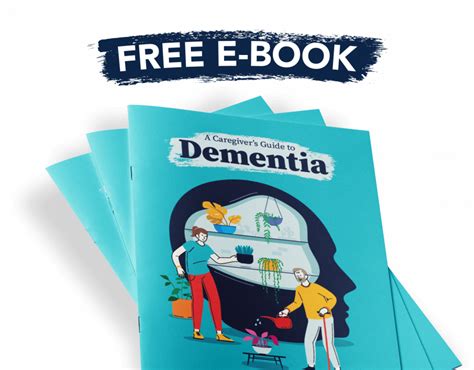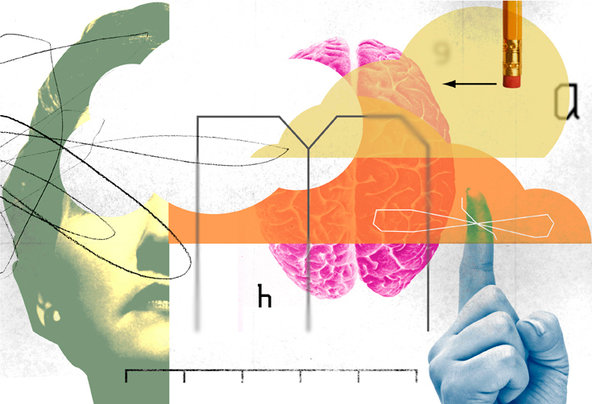How Do U Die From Dementia

Dementia is a complex and progressive neurocognitive disorder that affects millions of people worldwide. It is characterized by a decline in cognitive abilities, including memory, reasoning, and communication skills, which can significantly impact an individual's quality of life. While dementia itself is not a direct cause of death, the symptoms and complications associated with this condition can lead to life-threatening situations. Understanding how dementia progresses and the potential outcomes is crucial for caregivers, medical professionals, and those living with dementia to navigate the challenges it presents.
The Progression of Dementia

Dementia is an umbrella term for a range of neurodegenerative disorders, with Alzheimer’s disease being the most common type. The progression of dementia can vary from person to person, and it typically follows a gradual course, with symptoms worsening over time. The early stages of dementia may be marked by mild cognitive impairment, such as forgetfulness or difficulty finding the right words. As the disease advances, individuals may experience more severe symptoms, including:
- Severe memory loss, especially of recent events and personal experiences.
- Confusion and disorientation, often leading to getting lost in familiar places.
- Difficulties with reasoning, problem-solving, and decision-making.
- Changes in mood and behavior, including anxiety, depression, and aggression.
- Impaired judgment and insight, which can result in unsafe behavior.
- Loss of ability to perform everyday tasks and self-care.
Complications and Life-Threatening Factors

While dementia primarily affects cognitive functions, it can also lead to a range of physical and medical complications that contribute to the decline in overall health and increase the risk of mortality.
Infection and Pneumonia
Individuals with advanced dementia often have difficulty swallowing, known as dysphagia. This can lead to aspiration, where food or liquids enter the airways and lungs, causing pneumonia. Pneumonia is a common and potentially life-threatening complication in dementia patients. It can cause severe respiratory distress and, if left untreated, can result in respiratory failure and death.
Malnutrition and Dehydration
Dementia can affect a person’s ability to eat and drink adequately. They may forget to eat, lose interest in food, or have difficulty coordinating chewing and swallowing. Malnutrition and dehydration can weaken the immune system, increase the risk of infections, and lead to organ failure over time.
Falls and Injuries
As dementia progresses, individuals may experience balance issues, coordination problems, and a decreased awareness of their surroundings. This can result in frequent falls, which can cause serious injuries such as fractures, head trauma, and internal bleeding. Falls are a significant concern, especially in older adults with dementia, as they can lead to rapid decline and death.
Medications and Polypharmacy
People with dementia often require multiple medications to manage their symptoms and any coexisting conditions. However, the risk of medication interactions and side effects increases with the number of drugs taken. Polypharmacy, the use of multiple medications, can lead to adverse drug reactions, confusion, and even organ damage, particularly in the liver and kidneys.
Inactivity and Bed Sores
Dementia patients may become increasingly sedentary as their condition progresses. Prolonged immobility can lead to the development of pressure ulcers, commonly known as bed sores. These sores can become infected and, if left untreated, can lead to systemic infections and sepsis, which can be fatal.
Cardiovascular Complications
Dementia is associated with an increased risk of cardiovascular events, such as heart attacks and strokes. The cognitive decline can affect an individual’s ability to recognize and respond to symptoms of a heart attack or stroke, leading to delayed treatment and potentially fatal outcomes.
| Complication | Description |
|---|---|
| Pneumonia | Aspiration and infection of the lungs. |
| Malnutrition | Inadequate intake of nutrients and calories. |
| Dehydration | Insufficient fluid intake leading to health risks. |
| Falls | Balance issues and injuries from falls. |
| Polypharmacy | Potential for medication interactions and side effects. |
| Pressure Ulcers | Skin sores due to prolonged immobility. |
| Cardiovascular Events | Increased risk of heart attacks and strokes. |

Caring for Individuals with Dementia
Caring for someone with dementia is a challenging and often emotionally demanding task. Caregivers play a vital role in providing support, ensuring safety, and maintaining the well-being of their loved ones. Here are some essential considerations for caregivers:
-
Create a Safe Environment: Modify the living space to reduce fall risks and ensure a calm and familiar atmosphere. Remove tripping hazards, install grab bars, and provide clear pathways.
-
Encourage Healthy Habits: Promote regular exercise, a balanced diet, and adequate fluid intake. Assist with daily activities to ensure proper nutrition and hydration.
-
Manage Medications: Work closely with healthcare professionals to understand medication schedules and potential interactions. Keep a detailed record of all medications and their dosages.
-
Monitor for Infections: Watch for signs of pneumonia, urinary tract infections, and skin infections. Prompt treatment can prevent complications.
-
Seek Professional Guidance: Consult with healthcare providers, geriatric specialists, and dementia support organizations for expert advice and resources.
The Future of Dementia Care
The field of dementia research is continuously evolving, and advancements in understanding the disease and its treatment offer hope for improved outcomes. Here are some potential future implications and developments:
Early Diagnosis and Intervention
Researchers are working towards developing more accurate and earlier detection methods for dementia. Early diagnosis allows for timely intervention and the potential to slow down the progression of the disease through medication, lifestyle changes, and cognitive therapies.
Personalized Treatment Approaches
Each person’s experience with dementia is unique, and personalized treatment plans that address individual needs and symptoms are becoming more prevalent. This includes tailored medication regimens, cognitive stimulation therapies, and personalized care plans.
Preventive Strategies
Emerging research suggests that certain lifestyle factors, such as a healthy diet, regular exercise, and mental stimulation, may help reduce the risk of developing dementia. Preventive measures could become an essential part of dementia care and management.
Improved Caregiving Support
As the understanding of dementia and its impact on caregivers grows, there is a focus on providing better support systems for caregivers. This includes access to respite care, caregiver training programs, and community resources to reduce caregiver burden and improve overall care quality.
Technology and Assistive Devices
Advancements in technology offer new possibilities for dementia care. Smart home devices, GPS tracking systems, and wearable technology can enhance safety and provide caregivers with real-time updates on their loved ones’ well-being.
Conclusion

Dementia is a complex and multifaceted condition that affects not only the individual but also their caregivers and loved ones. While the disease itself does not directly cause death, the complications and challenges it presents can lead to life-threatening situations. Understanding the progression of dementia and the potential outcomes is crucial for providing the best possible care and support. With ongoing research and advancements in dementia care, there is hope for improved quality of life and potentially more effective treatments in the future.
Can dementia be reversed or cured?
+Unfortunately, most types of dementia, including Alzheimer’s disease, currently have no cure. However, early diagnosis and intervention can help manage symptoms and potentially slow down the progression of the disease. Research is ongoing to find effective treatments and potentially cure or prevent dementia in the future.
How can caregivers support individuals with dementia?
+Caregivers can provide essential support by creating a safe and comfortable environment, assisting with daily activities, and ensuring proper nutrition and hydration. It’s crucial to maintain open communication with healthcare professionals and seek support from dementia care organizations. Understanding the person’s needs and adapting care strategies accordingly is key.
Are there any warning signs of serious complications in dementia patients?
+Yes, caregivers should be vigilant for signs of infection, such as fever, cough, or difficulty breathing, which could indicate pneumonia. Other warning signs include sudden changes in behavior, increased confusion, or signs of physical injuries like cuts, bruises, or fractures. Any significant changes or concerns should prompt a consultation with a healthcare provider.



